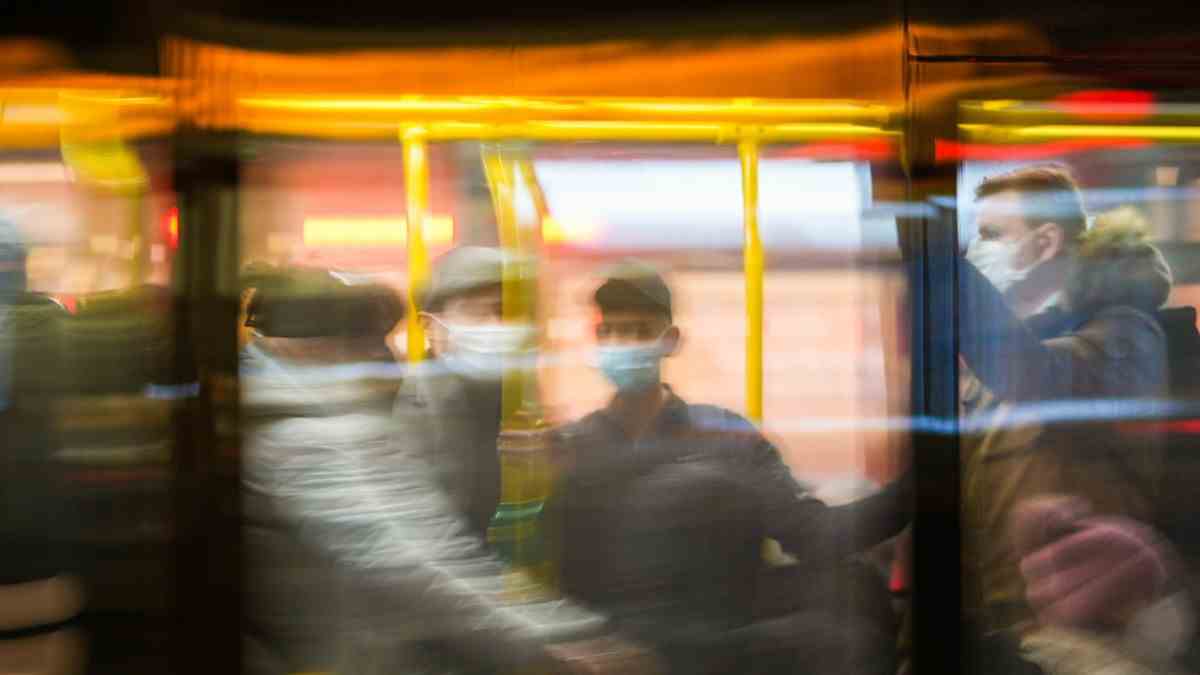How can the Covid-19 pandemic be summarized in all its extent and monstrosity? The International Science Council (ISC) tried two words: “Unprecedented and incomplete”, is what the ISC report just published says about the consequences of the successes and mistakes in the fight against the pandemic. After months of analyzing political action and scientific studies, the ISC – an association of more than 200 scientific organizations that sees itself as the global voice of science – has come to a clear conclusion: the course must urgently be set for better handling of pandemics, precisely because Covid-19 is not over yet. And better handling means: more complex thinking.
As a health crisis, the pandemic has “tragically claimed millions of lives,” said ISC President Peter Gluckman. “But their influences go well beyond health.” More than any crisis before it, the pandemic has shown how political decisions in one area affect numerous other areas: those who close schools risk educational opportunities; who closes borders economic development.
Most governments only look at vaccines and medicines
To show the hot spots for policy action, the consortium has designed three scenarios of where the world could be in terms of Covid-19 in 2027 – a favorable, an unfavorable and a medium scenario. However, the Council emphasizes that the pandemic will ultimately remain unpredictable. “Other developments are also possible, intermediate ones as well as more extreme ones,” emphasizes the ethicist Christiane Woopen from the University of Bonn, who worked on the report. For her, the valuable thing about this project is the systemic view, says Woopen: “I missed such thinking in possible scenarios in German politics during the entire pandemic. It is so important to think about which measures result in which consequences and how to mitigate them.”
In any case, the complexity is enormous. The ISC has identified 53 factors that can influence the further course of the pandemic. However, most governments only looked at the development of vaccines, the supply of vaccines and medicines, the monitoring of new variants and measures to contain infections. However, many factors, some of which are even more important, are not sufficiently taken into account. According to the report, the negative impact of the pandemic on education will continue to have an effect until the end of this century. The stress on the psyche was also underestimated. The pandemic has led to 53.2 million cases of major depression and 76.2 million anxiety disorders worldwide. It is therefore necessary to expand therapy places and to strengthen education systems, for example through digitization. It is also particularly important to curb the spread of false information and to prevent the gap between rich and poor from widening due to global crises.
So where will the world be in terms of Covid-19 in 2027? The scientists call this the most likely development in their eyes continuity scenario. In this case, unvaccinated people will continue to live primarily in poorer countries. It then invested in health systems and education. Covid-19 has become endemic but flares up, necessitating booster shots. However, trust in the state has fallen, populism has increased and social cohesion has weakened.
Global solutions are needed, not just national ones
The scenario is more pessimistic missed recovery: The social consequences of the pandemic were not cushioned here. Inequality is increasing due to rising geopolitical tensions and protectionist policies, and there is a lack of international cooperation. While richer countries offer boosters, most of the world’s population remains unvaccinated. Serious outbreaks occur again and again. Populism affects international cooperation.
The third, more optimistic scenario is also possible Collaboration Plus. Because cooperation has improved, Covid-19 has become less important. More than 70 percent of the world’s population is effectively vaccinated, and antiviral drugs are cheap and widely available. Rich countries have invested in social security, digitization and health systems because of the pandemic shock. There are still new Covid-19 waves, but they are manageable. Governments have pandemic plans and science advice.
The top prerequisite for a favorable course is therefore: Instead of just thinking short-term, governments must grasp the consequences of their decisions in all their complexity and keep an eye on social cohesion. But the latter is precisely what the report lacks: “Although the pandemic is a global crisis through and through, politicians have primarily focused on national solutions.” But a global crisis needs global answers, emphasizes Christiane Woopen. The ethicist advocates strengthening global institutions such as the World Health Organization. A fair distribution of vaccines must also be enforceable through amended international law. “We have to overcome national egoism. The consequences of the pandemic in other countries will accompany us geopolitically for a long time, unfortunately this is still not well understood.”

